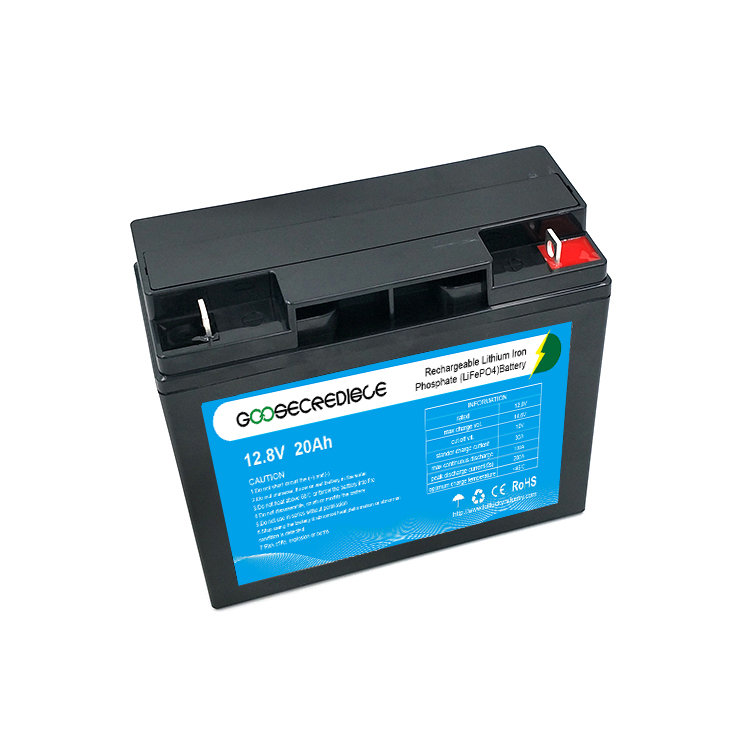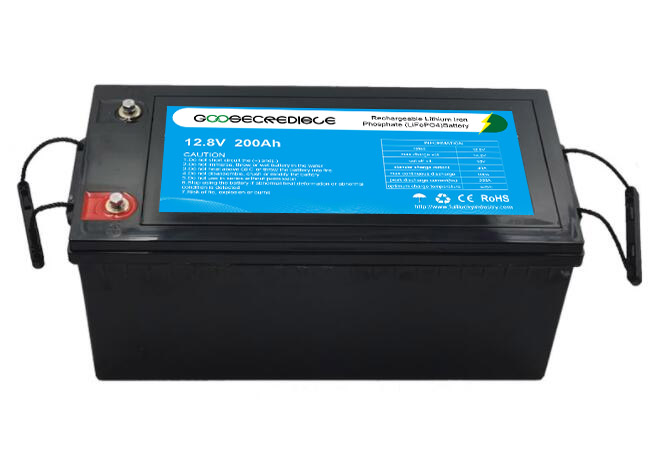The Advantages of Buying Wholesale LiFePO4 Batteries Online
Wholesale LiFePO4 batteries are becoming increasingly popular for a wide range of applications, from electric vehicles to renewable energy storage systems. These batteries offer numerous advantages over traditional lead-acid batteries, including longer lifespan, faster charging times, and higher energy density. When it comes to buying wholesale LiFePO4 batteries online, there are many factors to consider. In this article, we will explore the advantages of buying wholesale LiFePO4 batteries online and what to look for in a reputable supplier.
Lower Prices: One of the biggest advantages of buying wholesale LiFePO4 batteries online is the cost savings. Online suppliers typically have lower overhead costs, which allows them to offer lower prices to customers. Additionally, bulk purchasing of batteries can result in even greater savings.
Wide Selection: Online suppliers typically offer a wider selection of LiFePO4 batteries than brick-and-mortar stores. This means that customers can find the exact battery that they need for their specific application, whether it is for an electric vehicle, solar panel system, or marine application.
Convenience: Buying wholesale LiFePO4 batteries online is convenient, allowing customers to shop from the comfort of their own home or office. Online suppliers also offer 24/7 customer service, making it easy for customers to get answers to their questions and support when they need it.
Quality Control: Reputable wholesale LiFePO4 battery suppliers have strict quality control measures in place to ensure that each battery meets the highest standards of safety and performance. This helps to ensure that customers receive high-quality batteries that will perform as expected and last for years to come.
Shipping and Delivery: Online suppliers typically offer fast shipping and delivery, ensuring that customers receive their batteries as quickly as possible. Many suppliers also offer free shipping for bulk orders, further reducing the cost of purchasing wholesale LiFePO4 batteries online.
Technical Support: Reputable wholesale LiFePO4 battery suppliers offer technical support to customers, helping them to choose the right battery for their application and providing assistance with installation and maintenance.
Warranty and Returns: Most online suppliers offer warranties on their batteries, giving customers peace of mind that they are purchasing a high-quality product. Additionally, reputable suppliers offer flexible return policies, allowing customers to return batteries that are defective or do not meet their expectations.
Environmental Sustainability: LiFePO4 batteries are more environmentally sustainable than traditional lead-acid batteries, as they do not contain toxic heavy metals or pose a risk of leakage. By choosing a reputable wholesale LiFePO4 battery supplier, customers can ensure that they are supporting environmentally sustainable practices.
Customization: Online suppliers may offer customization options for LiFePO4 batteries, allowing customers to choose the size, shape, and capacity that best suits their needs. This is particularly beneficial for customers with unique applications that require a battery with specific dimensions or capacity.
Expertise: Reputable wholesale LiFePO4 battery suppliers have expertise in the industry and can provide valuable advice and guidance to customers. They can offer recommendations for the best battery for a specific application, as well as tips for installation and maintenance.
In conclusion, buying wholesale LiFePO4 batteries online offers numerous advantages, including lower prices, wide selection, convenience, quality control, fast shipping, technical support, warranty and returns, environmental sustainability, customization, and expertise. When choosing a supplier, it is important to consider factors such as reputation, product quality, customer service, and technical expertise to ensure that you receive high-quality batteries that will meet your specific needs.
Time: 2023-5-3
A 12V Lithium Iron Phosphate (LiFePO4) battery is a type of rechargeable battery that is commonly used in various applications. This type of battery is known for its high energy density, low self-discharge rate, and long lifespan. In this article, we will discuss the features, advantages, and applications of a 12V LiFePO4 battery. Features of a 12V LiFePO4 Battery A 12V LiFePO4 battery consists of a cathode, an anode, and an electrolyte. The cathode is made of lithium iron phosphate, while the anode is typically made of carbon. The electrolyte is usually a lithium salt in an organic solvent. The battery has a nominal voltage of 12V and a capacity range of 2Ah to 100Ah. Advantages of a 12V LiFePO4 Battery One of the main advantages of a 12V LiFePO4 battery is its high energy density. This means that it can store more energy in a smaller space compared to other types of batteries. It also has a low self-discharge rate, which means that it can hold its charge for a long time. The battery also has a long lifespan, with a typical cycle life of more than 2000 cycles. Another advantage of a 12V LiFePO4 battery is its safety. Unlike other types of lithium-ion batteries, it is less prone to overheating, which can lead to thermal runaway and even explosion. This is because it has a more stable chemical structure and is less reactive than other types of lithium-ion batteries. ...
Time: 2023-6-16
Introduction As the world continues to grapple with the issue of climate change, the need for eco-friendly solutions has become more apparent. Energy storage is one of the areas where the need for eco-friendly solutions is most pressing. Lithium iron phosphate battery packs are one of the most promising solutions to this problem. In this article, we will explore what lithium iron phosphate battery packs are, how they work, and their advantages over other types of batteries. What are Lithium Iron Phosphate Battery Packs? Lithium iron phosphate battery packs are a type of rechargeable lithium-ion battery. They are made by combining lithium iron phosphate (LiFePO4) as the cathode material, carbon as the anode material, and an electrolyte. The resulting battery pack is known for its high power density, long cycle life, and excellent thermal stability. The chemistry of lithium iron phosphate battery packs is similar to that of other lithium-ion batteries. Lithium ions move from the anode to the cathode during discharge and from the cathode to the anode during charging. However, the use of lithium iron phosphate as the cathode material offers several advantages over other types of cathode materials. Advantages of Lithium Iron Phosphate Battery Packs 1. Safety One of the primary advantages of lithium iron phosphate battery packs is their safety. Unlike other types of lithium-ion batteries, they are highly resistant to thermal runaway, which is the phenomenon where a battery overheats and catches fire. This is due to the...
Time: 2023-3-7
Lithium Iron Phosphate (LiFePO4) batteries are becoming increasingly popular in various industries, from electric vehicles to renewable energy systems. With the growing demand for this technology, choosing the right supplier becomes crucial. A reliable supplier not only ensures high-quality products but also provides timely delivery and competitive pricing. Here are some factors to consider when choosing the best LiFePO4 battery supplier for your business needs. Quality Control Standards The quality of LiFePO4 batteries depends on the manufacturing process, and a reliable supplier must have strict quality control standards in place. Look for suppliers who have certifications such as ISO 9001, ISO 14001, or UL. These certifications ensure that the supplier follows specific quality control protocols, and their products meet international standards. Range of Products Different businesses have varying needs, and a good LiFePO4 battery supplier should offer a wide range of products to cater to these needs. Whether you need batteries for electric vehicles, solar energy systems, or backup power, the supplier should have a variety of options to choose from. Also, ensure that the supplier can provide customized solutions to meet your specific requirements. Manufacturing Capacity The supplier's manufacturing capacity is another crucial factor to consider. A reliable supplier should have a large production capacity to meet your needs promptly. Also, they should have advanced manufacturing equipment and processes to ensure consistent quality. Pricing and Payment Terms Pricing is a critical factor when choosing a LiFePO4 battery supplier, but it should not be the only...
Time: 2023-12-23
The advancement in technology has brought about a significant improvement in power solutions. One such innovation is the high-capacity 12V 100AH LiFePO4 battery. This lithium iron phosphate (LiFePO4) battery is revolutionizing the way we store and utilize power efficiently. The 12V 100AH LiFePO4 battery offers a high energy density and a long lifespan compared to traditional lead-acid batteries. This makes it an ideal choice for a wide range of applications, including solar energy storage systems, electric vehicles, and backup power solutions. One of the key advantages of this battery is its high capacity. With a capacity of 100AH, it can store a large amount of energy, providing an efficient power solution for various needs. This high capacity allows for longer runtimes and less frequent recharging, making it an excellent choice for off-grid applications or situations where a stable power supply is crucial. In addition to its high capacity, the 12V 100AH LiFePO4 battery also offers a high discharge rate. This means that it can deliver power quickly and efficiently when needed. Whether it\'s starting an electric vehicle or powering a high-demand device, this battery can handle it with ease, ensuring a reliable and consistent power supply. Another notable feature of this LiFePO4 battery is its long lifespan. Unlike traditional lead-acid batteries that degrade over time, the LiFePO4 chemistry is known for its exceptional cycle life. This means that the battery can be charged and discharged numerous times without significant loss of capacity. With proper...
Time: 2023-3-7
As medical devices become more advanced and complex, their power sources need to keep up. That's where self-heated LiFePO4 batteries come in. These batteries are specifically designed to operate in extreme temperature conditions, making them ideal for use in medical equipment that requires consistent and reliable power. If you're looking for the best self-heated LiFePO4 battery suppliers for your medical device needs, here are some factors to consider: Quality and Reliability: The most important factor to consider when choosing a self-heated LiFePO4 battery supplier is the quality and reliability of their batteries. Look for suppliers that use high-quality materials and have a reputation for producing reliable and long-lasting batteries. Customization Options: Medical devices often have specific power requirements, so it's important to choose a supplier that can customize their batteries to meet your needs. Look for suppliers that offer a range of voltage and capacity options and can tailor their batteries to your device's specifications. Certification and Compliance: Medical devices are subject to strict regulations, so it's important to choose a supplier that complies with all relevant certifications and regulations. Look for suppliers that have ISO 13485 certification and are compliant with FDA regulations. Technical Support: When working with complex medical devices, technical support is crucial. Choose a supplier that has a knowledgeable technical support team that can help you with any questions or issues that arise. Cost: While quality and reliability are important factors, cost is also a consideration. Look for suppliers that...
Time: 2023-4-25
Lithium starter batteries are becoming increasingly popular in the automotive industry due to their many advantages over traditional lead-acid batteries. In this article, we will explore the benefits of lithium starter batteries and their applications. Advantages of Lithium Starter Batteries: 1. Lightweight: Lithium batteries are significantly lighter than lead-acid batteries, making them ideal for automotive applications where weight is a concern. This can improve the overall performance and fuel efficiency of the vehicle. 2. Higher Energy Density: Lithium batteries have a higher energy density than lead-acid batteries, which means they can store more energy in the same size and weight. This results in longer battery life and more power output. 3. Faster Recharge: Lithium batteries can be recharged much faster than lead-acid batteries, which means less downtime for the vehicle. 4. Longer Lifespan: Lithium batteries have a much longer lifespan than lead-acid batteries, making them a more cost-effective option in the long run. 5. Maintenance-Free: Lithium batteries require no maintenance, unlike lead-acid batteries, which need to be periodically checked and have their water levels topped up. Applications of Lithium Starter Batteries: 1. Automotive: Lithium starter batteries are ideal for use in cars, motorcycles, and other vehicles. They are lightweight, compact, and have a high power output, which can improve performance and fuel efficiency. 2. Marine: Lithium starter batteries are also suitable for use in boats and other marine applications. They can withstand the harsh marine environment and are lightweight, making them...
Time: 2023-7-14
Introduction The rapid development of technology and the increasing demand for communication services have led to the establishment of numerous communication base stations worldwide. These stations play a vital role in providing wireless connectivity to mobile devices and ensuring uninterrupted communication for individuals and businesses. To power these stations, the choice of batteries is crucial. In recent years, lithium batteries have emerged as a popular and efficient choice for communication base stations. This article aims to explore the advantages of lithium batteries in communication base stations and shed light on their potential impact on the industry. Advantages of Lithium Batteries 1. High Energy Density Lithium batteries are known for their high energy density, which means they can store a significant amount of energy in a small and lightweight form. This characteristic is particularly beneficial for communication base stations, as it allows for the installation of more compact battery systems that require less space. Moreover, the high energy density of lithium batteries ensures a longer runtime, reducing the need for frequent battery replacements and minimizing downtime. 2. Longer Lifespan Another advantage of lithium batteries in communication base stations is their longer lifespan compared to traditional battery technologies. Lithium batteries can endure a higher number of charge-discharge cycles without significant capacity degradation. This extended lifespan translates into cost savings for base station operators, as they can rely on the same set of batteries for a longer duration before needing replacements. Additionally, the reduced frequency of battery...
Time: 2023-8-23
Off-roading has always been a thrilling and adventurous activity for enthusiasts who crave the excitement of conquering rugged terrains. In recent years, there has been a significant shift towards embracing greener alternatives in various industries, and off-roading is no exception. The emergence of electric dirt bikes powered by lithium batteries has revolutionized the off-roading scene, offering an eco-friendly and high-performance alternative to traditional gasoline-powered bikes. With their numerous advantages, electric dirt bikes with lithium batteries have become the future of off-roading. One of the most significant advantages of electric dirt bikes with lithium batteries is their environmental friendliness. Traditional dirt bikes emit harmful greenhouse gases and contribute to air pollution, which poses a threat to our planet's delicate ecosystem. On the other hand, electric dirt bikes produce zero emissions, making them an eco-conscious choice for off-roading enthusiasts. By reducing carbon footprint and minimizing the impact on nature, riders can enjoy their adventures guilt-free, knowing they are making a positive contribution to the environment. In addition to their environmental benefits, electric dirt bikes with lithium batteries offer impressive performance capabilities. Lithium batteries are known for their high energy density, allowing for longer riding periods compared to traditional lead-acid batteries. This means that riders can enjoy extended off-roading sessions without worrying about running out of power. Furthermore, lithium batteries have a faster recharge time, ensuring minimal downtime between rides. With advancements in battery technology, electric dirt bikes can now deliver the same power and speed as their gasoline counterparts, if...





















